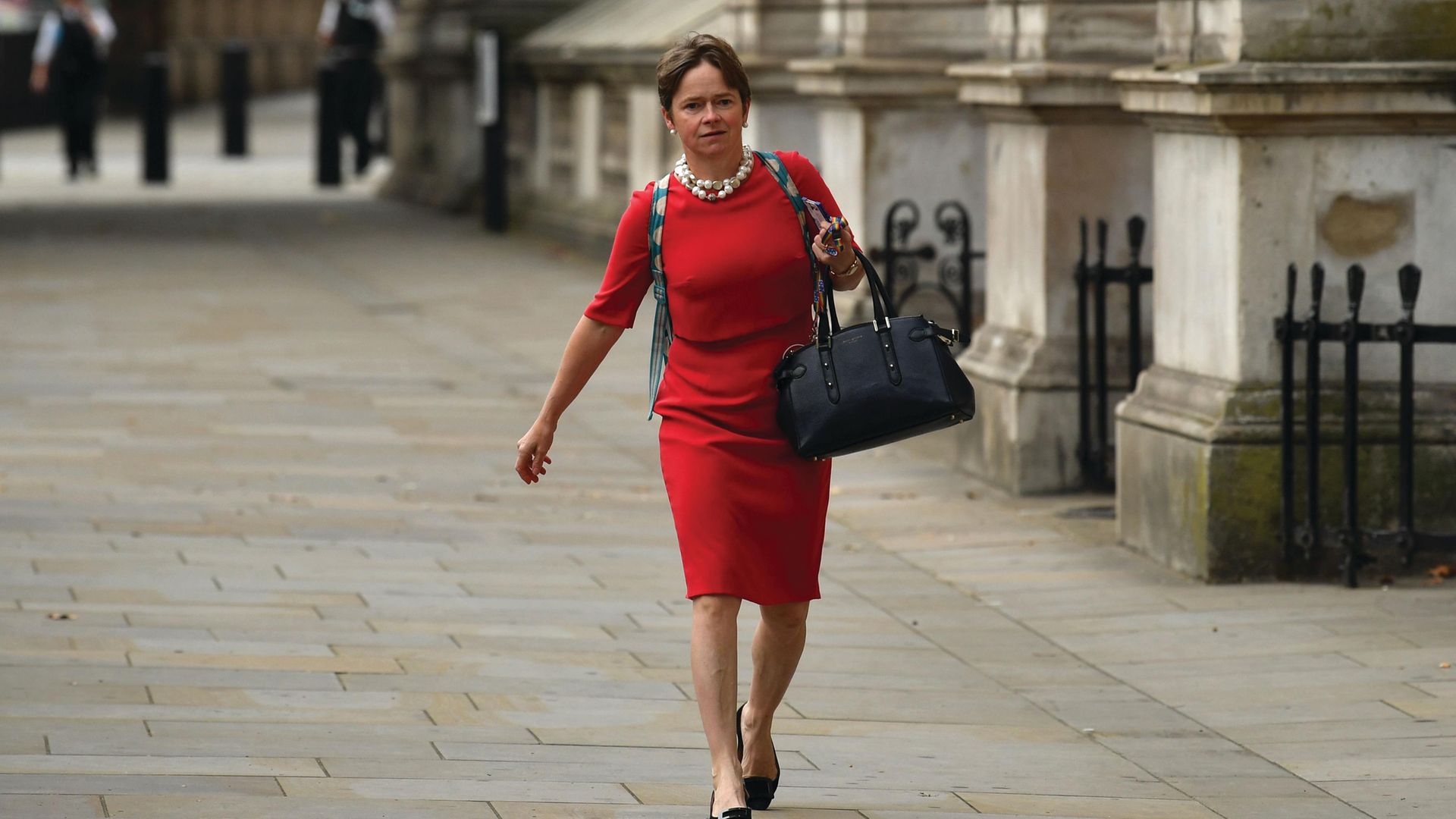Dido Harding may have professed to care about the NHS and its values when she made her vain attempt to become its chief executive, but her underlying loyalties to money-spinning private American healthcare are now clear enough. Lady Harding has taken on a consultancy job at Carna Health, an ambitious Massachusetts-based company that claims to be ushering in “a new era of healthcare”.
Harding has kept a low profile since she presided over the £37bn test-and-trace fiasco, and there was no public announcement of her new job at Carna. Nor does she appear on its website. The outfit states on its website that it is gathering together a team with “extensive networks in the financial, healthcare, technology, insurance, and pharma industries”.
Harding will also be offering her expertise – if that is what it can be called – more widely through her personal consultancy, Avalon Enterprises, and through speaking gigs for Chartwell Speakers. Away from healthcare, she has also accepted a consultancy role at Vitrifi, a new telecoms business that regularly donates to the Tory Party.
Before Boris Johnson put her in charge of test and trace, Harding had a long history of “failing upwards”. While chief executive of TalkTalk, the telecoms group was handed record fines by the regulator, Ofcom, for over-billing and, in 2015, fell victim to a cyber-attack in which 157,000 clients had their data stolen, causing 100,000 of them to give up, company profits to halve and TalkTalk’s shares to lose two-thirds of their value.
The public accounts committee may have made it clear that test and trace was an “eye-watering” waste of money, but Harding herself is still not remotely contrite. She has not given up on securing a senior role at the NHS and is pinning her hopes on Johnson returning as prime minister. She is, meanwhile, blocking anyone on the social networking site Twitter – myself included – who has the temerity to criticise her.
Bizarrely, she still exercises a degree of influence over public health by sitting as a member of the Health Honours Committee.
Mandrake’s disclosure just before Christmas that Boris Johnson believed he’d be back as PM after Rishi Sunak’s inevitable drubbing in the May local elections struck many at the time as a preposterous notion.
Still, Johnson is now none-too-discreetly laying the groundwork for his putative comeback. There was his meeting with Rupert Murdoch at his ranch in Montana to canvass support. Now, using a technique he often used in office, he has been getting pliant journalists to trail the idea to establish if it has sufficient support.
Over the weekend, the Mail on Sunday obediently ran a piece saying that Sir Keir Starmer had been warned his chances of becoming prime minister would be harmed if the “rock star” Johnson were to be restored to office. The same day, the Sunday Times talked about a dinner in Johnson’s honour at the Carlton Club as the effective start of a leadership campaign. The same paper outlined how the loyalists Peter Cruddas and Priti Patel were setting up the Conservative Democratic Organisation to give grassroots Tories – a lot keener on Johnson than his MPs – a chance to take back control of their party.
It’s telling, meanwhile, that Johnson has eschewed a lucrative offer to write for the Daily Mail and has chosen not to do anything with The Office of Boris Johnson, which he set up as a company shortly after leaving office. These offices are generally set up by former prime ministers to distribute income from speeches and journalism to their private staffs and charities.
The Office of Theresa May has already accumulated £1.2m in funds from her speaking engagements, with the lion’s share of it commendably earmarked for her charities.
Johnson’s office, by contrast, has yet to record any activity at all. Even in the long term, I certainly wouldn’t advise any charities to get their hopes up. Johnson doesn’t do charity, and once even charged the taxpayer for the cost of a Remembrance Day wreath to lay at an event in his constituency.
Jacob Rees-Mogg’s ambitions to run for the Tory leadership – in the event Rishi Sunak loses the next election – look likely to be quietly abandoned.
The stories of him thinking of running coincided with the announcement that his investment firm, Somerset Capital Management, was up for sale, with a price tag of between £70m and £100m.
Rees-Mogg wanted the money to keep his family in the manner to which they’d become accustomed as he attended full time to the job of keeping his party on its lurch to the hard right.
In the event, no buyer came forward for Somerset with the sort of cash Rees-Mogg wanted and the sale has been abandoned. He is now having to get by in these straitened times on a dividend of just £500,000 a year from Somerset, down from the £9.7m he banked a year earlier.
He still has his property outfit, Saliston – that’s worth £10,353,381, but obviously that’s small change to him – but Somerset will be his focus for now.
The turn of events has probably saved still more embarrassment. In an interview with a Catholic website in 2019, Rees-Mogg displayed a greater sense of realism when it came to the top job. “I wouldn’t have any support with members of parliament, so it doesn’t arise,” he replied when asked if he would ever run for it.
In 2011, a group of newly elected Tory MPs counted Britain’s blessings in a now largely forgotten book called After the Coalition. They drew attention to the country’s “unique combination of strengths” in its post-imperialist era that included, crucially, “membership of the European Union”. Who were they? Priti Patel, Dominic Raab, Kwasi Kwarteng, Liz Truss and Chris Skidmore. It’s a funny old world.
Around the turn of the millennium, Paul Dacre, as editor of the Daily Mail, stood up at the paper’s summer party at Hampton Court and told his minions he’d heard talk of the internet transforming journalism. “My response to that,” he declared, less than presciently, “is bullshit.com.”
To the very end of his period as the Mail’s editor, Dacre insisted on reading stories, page proofs and even emails on paper. There is a certain piquancy therefore to the appointment of his nemesis, Geordie Greig, as editor in chief of the Independent, a now entirely digital news organisation.
“When he was younger, Geordie once worked for Paul and, when he resigned from his employment, Paul told him his career was over,” whispers my informant. “Since then, every time Geordie got a new job, he’d drop his former boss a polite note to bring him up to speed. Geordie had the good taste not to send Paul a note telling him he was going to succeed him as editor of the Daily Mail, as he had assumed he’d know.”
Dacre has been obsessed with what Greig would do when his gardening leave from the Mail was over, but, short of another note from Greig, he would almost certainly have been among the last to know he’d got the Indy gig. It was announced online.




